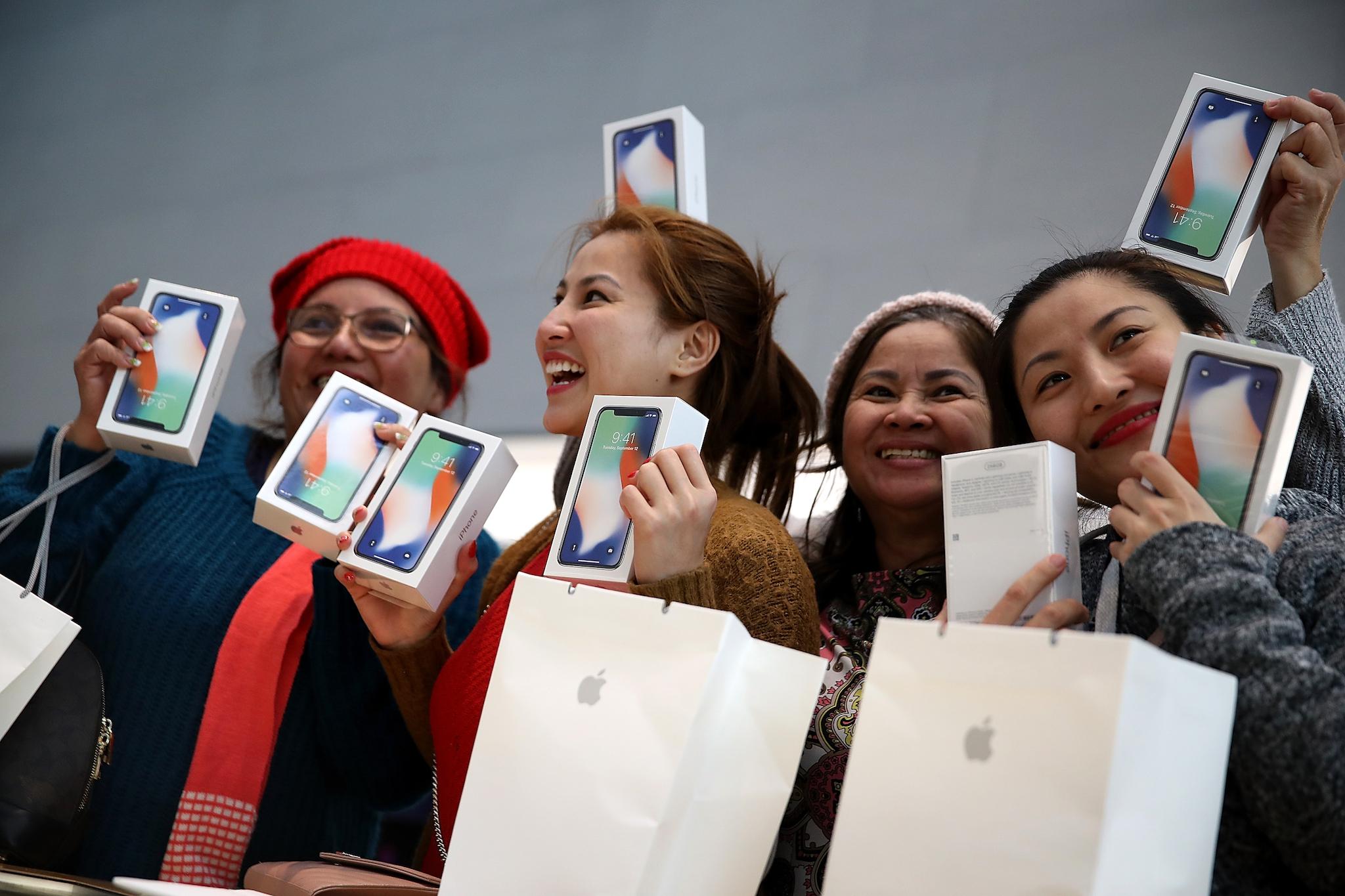iPhone users should be given compensation from Google, new lawsuit claims
'We don't believe it has any merit and we will contest it,' a Google spokesperson said

iPhone users should be given money by Google for the data it has collected on them, according to the leader of a campaign group who is launching a mass legal action against the tech giant.
For some time in 2011 and 2012, Google was using special tricks to watch how people were using their phones and feed back that data into its ad network, according to former Which? director Richard Lloyd, who claims Google unlawfully harvested that information.
The campaign group is now launching a major campaign – thought to be the first of its kind – that reportedly hopes to land at least £1 billion in compensation for an estimated 5.4 million users of the device.
Mr Lloyd, who is leading the campaign, alleges that between June 2011 and February 2012, Google used special technology to get hold of data that was being stored in Safari, the default browser that Apple builds into its iPhones. It was able to plan cookies, or small files that track people around the internet, and use them to get data that could then be used to personalise ads around the internet.
Google has dismissed the case and says that it intends to fight and win it in court.
He says that people should now be able to get compensation for that data collection in an easy way. He hopes to take a case to court on behalf of the five and a half million people who were using iPhones at that time, and get money back on all of their behalfs.
He told Radio 4's Today programme: "There is some precedent in the UK courts, where a small group of individuals settled privately with Google, but what has never happened, and what I think is a huge gap in the regulatory system, is everyone else who was affected by this workaround, the privacy settings on Safari, they've never had any access to redress at all and that's what we're trying to tackle with this claim."
He added: "What we're asking the court to do is allow me to represent the five and half million people that were affected, all on the same basis that their data rights were breached, and that Google should be held to account.
"At the moment there is a sense that Google and similar tech giants from Silicon Valley are behaving as if they are above the law, that they can't be held to account in the courts in this country."
A Google spokesman said: "This is not new - we have defended similar cases before. We don't believe it has any merit and we will contest it."
In August 2012 Google agreed to pay a civil penalty of 22.5 million US dollars (£15.1 million) to settle charges brought by the United States Federal Trade Commission, that it misrepresented to users of the Safari browser that it would not place tracking cookies or serve targeted advertisements to those users.
It is reported to be the first such mass legal claim of its kind in the UK.
Legal firm Mishcon de Reya has been appointed to represent the group - Google You Owe Us.
Partner James Oldnall, who is acting for Mr Lloyd in the legal action, said: "Whilst the total sums made by Google from misusing this data are likely to be large, the damages suffered by each individual are relatively small.
"A representative action such as this can be brought on behalf of all consumers and removes the need for individuals to bring an action, which they are unlikely to do.
"In this way Google and other tech companies can be held to account in relation to any alleged breaches of UK data protection law."
He said data had become an "important new currency" and was valuable to large corporations, therefore consumers needed methods which could effectively police the rights given to them.
The case is reported to start next year.
Additional reporting by agencies
Join our commenting forum
Join thought-provoking conversations, follow other Independent readers and see their replies
Comments
Bookmark popover
Removed from bookmarks